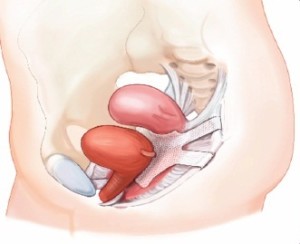Summary Judgment Denied in Pelvic Mesh Device Lawsuit
 A West Virginia federal judge has denied summary judgment to Boston Scientific in a pelvic mesh device lawsuit, finding an issue of fact regarding whether the plaintiff could have realized a connection between her injuries and the product within the two-year statute of limitations.
A West Virginia federal judge has denied summary judgment to Boston Scientific in a pelvic mesh device lawsuit, finding an issue of fact regarding whether the plaintiff could have realized a connection between her injuries and the product within the two-year statute of limitations.
On January 17, Judge Joseph R. Goodwin found that since the plaintiff’s surgeon failed to educate her on the possible link between her injuries and the pelvic mesh device, it was reasonable to determine that her body rejected the product.
Pelvic mesh device lawsuit background
The plaintiff was implanted with a Pinnacle Pelvic Floor Repair Kit and an Advantage Transvaginal Mid-Urethal Sling System in January 2010. Approximately four months after the surgery, she began experiencing vaginal discharge, itching, and abdominal cramping ─ among other complications. As a result, she underwent revision surgery, where her surgeon removed a small portion of the mesh and applied silver nitrate to the area.
The plaintiff underwent a second revision surgery on May 3, 2010. Her surgeon diagnosed her with complications generating from the exposed mesh from the Pinnacle device. She was forced to undergo a third surgery on June 18, 2010 to have a large portion of the exposed mesh removed. Ultimately, her symptoms still failed to improve and her surgeon removed even more exposed mesh during an office visit.
On September 17, 2010, the plaintiff underwent a fourth revision surgery, which also didn’t help to alleviate her symptoms. She then began to experience transvaginal mesh complications including abnormal vaginal bleeding, pink-tinged discharge, and uncomfortable intercourse.
Boston Scientific mesh lawsuits statute of limitations
The plaintiff claims her surgeon failed to inform her that her complications were due to a defect in the mesh. Her plaintiff fact sheet states that she realized her injuries were related to a product defect after seeing a television advertisement for transvaginal mesh litigation in August 2011. Conversely, her deposition testimony indicates she was unsure of the month and year she first saw the advertisement.
The plaintiff filed suit on September 21, 2012. Her lawsuit went directly into the Boston Scientific pelvic repair multidistrict litigation currently pending in the Southern District of West Virginia. Boston Scientific moved for summary judgment, claiming the plaintiff’s accusations are barred by California’s two-year statute of limitations for personal injury litigation, as she knew the cause of her injuries more than two years before filing suit.
Boston Scientific claims that because the plaintiff had at least four revision surgeries, she should have been placed on actual or inquiry notice that her symptoms were linked to a defect in the mesh implants. Additionally, the defendant argued that had the plaintiff consulted her doctor, her medical records, or the 2008 public FDA notice regarding complications with surgical mesh for transvaginal repair of pelvic organ prolapse, she would have realized her injuries were a result of a product defect.
Judge Goodwin stated that it’s doubtful the plaintiff will succeed in proving her case. At this point in the litigation he “must reluctantly conclude that there is a genuine issue of material fact regarding when Ms. Sanchez suspected that wrongdoing caused her injuries.”
He stated that it will be up to the jury to weigh the facts to determine if the plaintiff did indeed file her claim in a timely manner or if she should have suspected a product defect much earlier in the repair process.
- U.S. District Court for the Southern District of West Virginia, Boston Scientific Corp. Pelvic Repair System Products Liability Litigation http://www.wvsd.uscourts.gov/MDL/boston/
- Loislaw Federal District Court Opinions, Sanchez v. Boston Scientific Corporation http://resourcefullaw.com/documents/10162/0/SANCHEZ+v+BOSTON+SCIENTIFIC+CORPORATION.pdf


 Resources
Resources
 Resources
Resources
